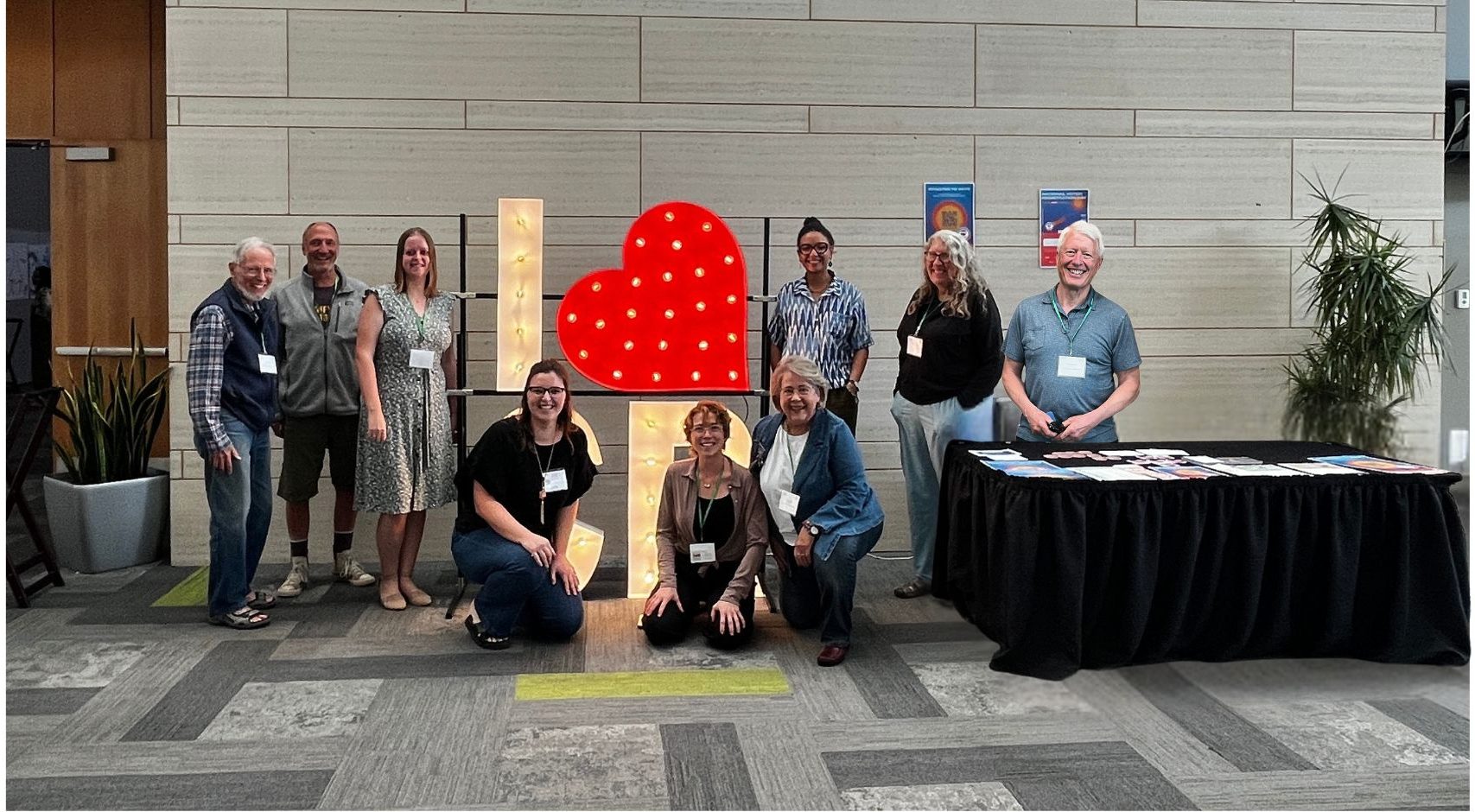
This September Clayton County Energy District (CCED) Coordinator Kelsi Davis and Board member Jessica Engelking attended the 2025 REAMP annual meeting in Cedar Rapids. Founded in 2004, the REAMP network addresses carbon emissions in the Midwest by focusing on innovative and adaptive approaches to systematic change. Through systems analysis members, such as CCED, develop a better understanding of energy across the Midwest and identify carbon reducing strategies. By collaborating across eight REAMP states, each containing multiple members, organizations use collaborative approaches to reach a shared goal of equitably eliminating greenhouse gas emissions in the Midwest by 2050. The annual meeting brings member organizations together for a 3-day learning, collaboration, and strategy session.
On day one, Davis and Engelking heard from Professor of Political Science, Faculty Director at Johns Hopkins, and author Hahrie Hahn. Exploring insights gained during research from her recently published book, Hahn outlined the importance and differences between organizing and mobilizing. Coordinator Kelsi then attended a fundraising breakout group. This session highlighted the best ways to improve organizational fundraising techniques to build supporter networks and connections. The day ended with a group dinner at the Indian Creek Nature Center, a net zero facility providing natural spaces within Cedar Rapids.
Day two began with an overview of REAMP network activity over the past year, including the collective impact of climate action. Renewable energy has increased, rates of CO2 pollution have steadied slightly, and coal use has declined. Coordinator Kelsi then attended a breakout session with state and federal legislators to encourage professional relationships. They provided tips on contacting legislators and stressed the importance of building trust. Next Davis attended a valuable session on rural storytelling. The session revolved around understanding rural beliefs, values, and priorities. To end day two Davis attended a session on storytelling and connecting with media coverage. This session highlighted the importance of personal stories used to connect people to each other and to their shared interests.
On day three the entire group took a tour of various sites around Cedar Rapids to explore controversy, climate, and community. Coordinator Kelsi, along with 2 other Iowa groups (Winneshiek Energy District and 1,000 Friends) helped to plan the tour. Stop one took the group to the large Alliant solar farm outside of Palo, IA. The group discussed the positives and negatives of utility scale solar, with a focus on how large-scale renewables present an opportunity for investment in rural communities. Stop two took the group to Matthew 25, a non-profit located in a neighborhood hit by the 2008 flood. Matthew 25 established a community garden to give residents access to fresh produce, which is also sold in a community store employing residents who may otherwise struggle to find work. They also built low-income and net zero housing units to help residents stay in the community.
The third stop of the tour was at a resiliency hub established in response to the 2020 Derecho. The Hub, located in a church in historic Wellington Heights, provides community gathering space, pantry items, and emergency shelter equipped with solar and battery storage. Pastor Keeyon has boosted community pride and autonomy through the resilience hub, bringing residents together to beautify and improve their neighborhood. Finally, the 4th stop was at Newbo Market in downtown Cedar Rapids. The market provides new business owners with the opportunity to learn skills necessary to grow their business in a safe environment. Many downtown stores started in the market and now thrive from the lessons and assistance provided by the organization. Additionally, the tour explored improvements made after the 2008 flood including flood walls, improved traffic lanes, biking and pedestrian safety infrastructure, and more.
CCED Coordinator Kelsi Davis enjoyed working with the REAMP team to plan an engaging tour of Iowa’s sustainability progress. She continues strengthening local resources through participation in multiple REAMP working groups, developing strategies for community resilience. The REAMP network provides crucial connections for CCED, including collaborative groups working on similar community programs, financial resources, and shared ideas for outreach/education. Sharing and building on successes helps CCED make progress at the local level, but it also provides a means to contribute to larger scale state and regional goals.
